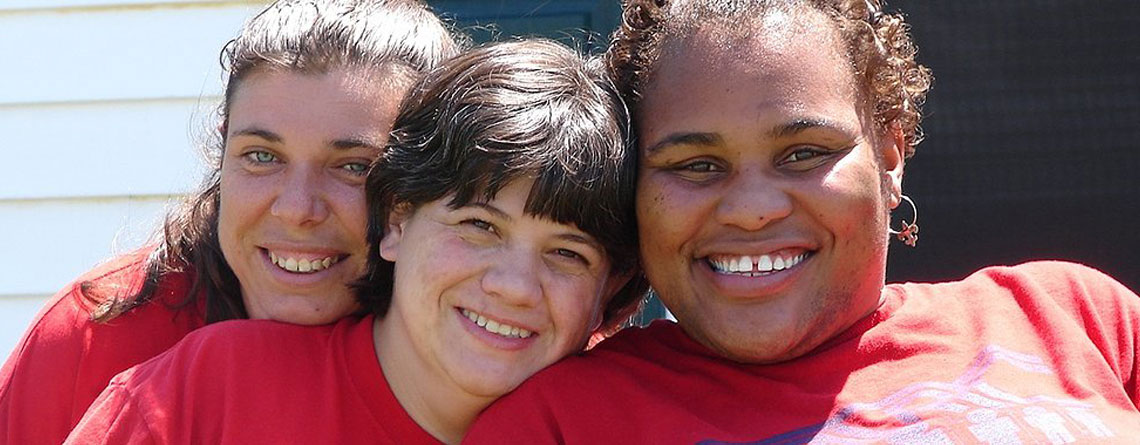About the ABLE
The Louisiana Achieving a Better Life Experience (La ABLE) is a savings program enacted in 2014. This program designed to help individuals with disabilities put aside money to pay for qualified disability expenses. These accounts provide an opportunity to save and invest with tax-free earnings to help participants maintain independence and quality of life. The money deposited into this account disregarded when determining eligibility for federal benefit programs, such as Medicaid and Social Security.
The ABLE Act grew out of an idea from several parents from the Down Syndrome Association of Northern Virginia around a kitchen table, who identified the injustice that existed in the system as it relates to the ability for individuals with disabilities and their families to save for the future. These parents / advocates were instrumental in bringing the idea of ABLE into an actual piece of legislation.
After eight long years, the Achieving a Better Life Experience (ABLE) Act, now known as the Stephen Beck Jr. ABLE Act passed! Stephen E. Beck Jr., vice chairman of both the National Down Syndrome Society and the Down Syndrome Association of Northern Virginia Board of Directors was one of those parents at that kitchen table in Virginia. It was his idea to find a way to help his daughter who had down syndrome save for her future without losing her services.
The primary purpose of the ABLE Act is to encourage and assist individuals and families in saving private funds for the purpose of supporting individuals with disabilities to maintain health, independence, and quality of life.
La. ABLE is administered by the Louisiana Trust Authority (LATTA) through the Board of Regents, and the Office of Student financial Assistance (LOSFA). LOSFA is responsible for receiving, investing and disbursing public funds, and managing all investments. These funds will be managed similar to the other program managed by LOSFA, the college savings (529) plan.
Benefits of the ABLE
Individuals can participate in the savings program and still receive public assistance & benefits. The cost of raising a child with a disability is not always covered by private insurance, Medicaid or Medicare. These accounts will supplement benefits provided through public assistance and state benefits and further the individual’s independence.
Tax-Free Earnings
The earnings you make on your La ABLE Account are not subject to federal income taxes, as long as you spend the earnings on Qualified Disability Expenses.
State Tax Deduction
At this time Louisiana has not agreed to participate in this tax deduction. Please check with your state taxation agency or financial planner for more information or updates on Louisiana’s state tax benefits.
Keep Your Public Benefits
For the first time in public policy, the ABLE Act recognizes the extra and significant costs of living with a disability. One of the primary reasons that the federal ABLE Act was passed was to protect individuals with disabilities from losing public assistance and other benefits such as SSI or Medicaid.
As stated in federal legislation, an ABLE account will, "secure funding for disability-related expenses on behalf of designated beneficiaries with disabilities that will supplement, but not supplant, benefits provided through private insurance, Medicaid, SSI, the beneficiary's employment and other sources."
This means that your La ABLE Account funds do not count against you for purposes of determining your eligibility for means-tested federal benefits programs, such as SSI and Medicaid. However there are limits with the SSI program.
Limited Impact on SSI Benefits
There are some limits on how much you are able to save in the account before it affects your eligibility for SSI. If you acquire more than $100,000 in your account, your SSI benefits may be suspended. SSI will treat anything over $100,000 a countable resource when determining your eligibility for SSI benefits.
This does not mean that you become ineligible for SSI, just that your benefits will be suspended until the balance decreases below $100,000.
At this time, money that is withdrawal for housing expenses and not used immediately can affect your SSI benefits. It is important that you not withdrawal for housing expenses too far in advance of you using the funds. For example, if you have rent that is due by the 10th of the month, make sure you withdraw the funds in that calendar month and not before. As long as the withdraw and the expense for housing happen in the same calendar month you should not have a problem.
Eligibility
An “Eligible Individual” is someone who developed their disability before the age of 26. The individual must have been living with their disability for at least one year, or they must expect their disability to last for at least a year.
In addition, the individual must meet at least one of the following criteria:
- Be entitled to Supplemental Security Income (SSI) because of their disability;
- Be entitled to Social Security Disability Insurance (SSDI) because of their disability;
- Have a condition listed on the Social Security Administration’s List of Compassionate Allowances Conditions; or
- Be able to "self-certify" their disability and diagnosis (see details below) when opening a La ABLE account.
"Self-certification" simply requires an individual to agree to the following statements during enrollment:
- The individual has a written, signed diagnosis from a licensed physician (note: individuals do not have to provide us with a copy of the diagnosis during enrollment, but a copy of the diagnosis must be available upon request); and
- The individual is either:
- (1) blind, within the meaning of the Social Security Act, or
- (2) has a medically determinable physical or mental impairment that results in "marked and severe functional limitations"
Proving Eligibility
Our process is entirely online. You will be asked a series of questions when you open your account. If you are self-certifying your disability, you will need to provide your doctor’s name and address, and the date of your diagnosis. You will need to produce a copy of your diagnosis in order to open an account, you must have a record of the diagnosis readily available.
The Eligible individual must be a Louisiana resident and must meet citizenship requirements.
Opening & Contributing to an Account
An Eligible Individual can open an account for him or herself. The Eligible Individual is known as the “Account Owner” “Administrator” or "Beneficiary" of the La ABLE Account. A parent, legal guardian, holder of a power of attorney, or the Social Security representative payee can also open, set up, and manage a La ABLE Account for their loved one. These individuals are known as "Administers."
*Please note - if you are the holder of a power of attorney, the power of attorney must be specific enough to give you authority over the Beneficiary's La ABLE Account administration.
*Update - a Social Security Administration-appointed representative payee can now serve as an Authorized Representative.
Visit our eligibility page to answer a quick eligibility quiz. After determining your eligibility, you will be prompted to open an account using our online portal. Once enrolled, you may contribute, withdrawal, and update account information any time.
Contributions can be made in the form of a check, cash in person or electronically into an individual’s Account.
Setting up your account online is free.
Any person, such as a family member, friend, or the person with a disability, may contribute to an ABLE account for an eligible account owner, administrator, or beneficiary. Contributions to an ABLE account must be made in cash. There are limits the total annual contributions made to any one ABLE account. However you must meet the federal gift tax exclusion. A contribution to an ABLE account on behalf of any designated beneficiary is treated as a completed gift to the beneficiary, which can qualify for the annual gift tax exclusion.
All deposits must be made in the amount of at least $10.00. The annual contribution limit for any ABLE account is currently set at $15,000. This amount includes contributions by participating individuals, family members and friends. ABLE Account balances up to $100,000 will not affect Social Security Income (SSI) benefits. However once the account exceeds $100,000, SSI benefits will be suspended until such time as the balance is reduced below $100,000.
Under certain circumstances, a beneficiary of an account can roll over funds from their account to another without paying a penalty.
- Death of the beneficiary
- Beneficiary moves to another state
- Money is transferred from one beneficiary to another beneficiary who is a immediate (brother, sister, step-brother, step-sister) eligible family member.
Funds from the account will be used to pay back any outstanding payments due that were incurred by the beneficiary upon the death of a beneficiary.
The amount of any Medicaid payback is calculated based on amounts paid by Medicaid after the creation of the ABLE Account and shall exclude amounts paid by the beneficiary as premiums to a Medicaid buy-in program.
Upon the death of the designated beneficiary, amounts remaining in the qualified ABLE account, up to the total medical assistance paid for the designated beneficiary after the establishment of the account under any State Medicaid plan, shall be distributed to such State upon filing of a claim.
Expenses
Qualified expenses are expenses that are related to the individual’s disability. The expense helps you to maintain or improve your health, independence, or quality of life. The most common expenses that are expected to be used in this program are:
- Education
- Transportation
- Employment Support
- Health & Personal Support
- Assistive Technology
- Housing
NOTE: SSI benefits can be affected if you use ABLE funds for any housing expenses. See the "Benefits" section of this face sheet for more information.
Other expenses that are qualified but not as common are health, prevention and wellness, financial management, legal fees, funeral and burial expenses, and other expenses.
****Expenditures for non-qualified purposes will be penalized.
Documenting Your Expenses
It is up to you to track how you spend the money in your La ABLE Account. We do not ask you for receipts. However, the IRS has the right to ask you to verify your expenditures. For this reason, you should keep good records on how you are spending your La ABLE Account funds.
Non-Qualified Expenditures
If you spend your La ABLE Account funds on a non-qualified expense, you will have to pay regular income taxes. Additionally, the non-Qualified funds you withdraw could be counted against you for purposes of determining your eligibility for means-tested public benefits programs, like Medicaid or SSI.
Request for withdrawals must be made in $200.00 increments and may be no more that the account balance. This request can be made in person or on line and should be limited to two times a month.

